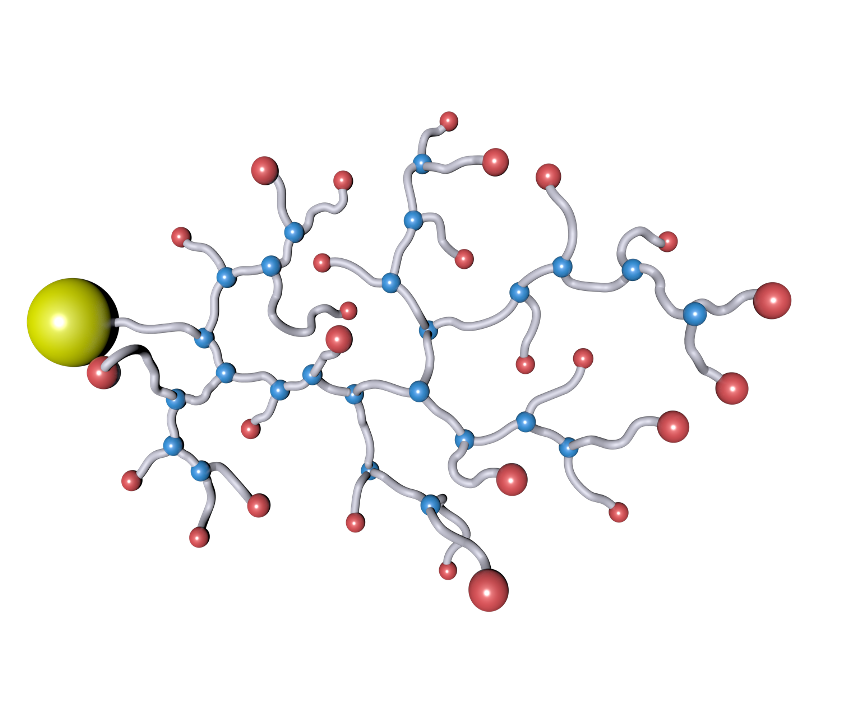Exploring the Varied Applications and Advantages of Polymers in Different Industries
Polymers, with their varied array of residential or commercial properties and performances, have become crucial in various markets, each reaping distinct benefits from their application. From boosting security and performance in the auto field to transforming medical gadgets in the health care sector, polymers play an essential role.
Automotive Market Applications
Polymers play an essential duty in enhancing the efficiency and resilience of numerous components within the automotive industry. These functional materials are thoroughly utilized in the production of various components, varying from indoor elements to under-the-hood applications. One prominent use polymers in the auto industry is in the manufacturing of light-weight components. By replacing typical metal parts with polymer-based choices, cars can attain improved fuel effectiveness without endangering on strength or safety.

Health Care Industry Advantages
In various health care applications, the advantages of using polymers are extensively identified for their varied range of advantageous properties. Polymers play an important function in the health care market because of their adaptability, biocompatibility, and cost-effectiveness. One of the main advantages of polymers in health care is their capability to be tailored to specific requirements, such as flexibility, sturdiness, and biodegradability, making them suitable for a wide variety of clinical applications.
Polymer-based products are thoroughly made use of in clinical tools, such as catheters, implants, prosthetics, and medicine delivery systems, as a result of their biocompatibility and ability to mimic natural tissues. These products can decrease the threat of sensitive responses or rejections, enhancing individual security and end results. Additionally, polymers are lightweight, making them ideal for wearable medical tools and ensuring client comfort.
In addition, polymers make it possible for the advancement of ingenious treatment methods, such as hydrogels for cells engineering and nanocomposites for targeted drug delivery. Their convenience of handling and sterilization makes them necessary for preserving high requirements of hygiene in medical care setups. In general, the diverse benefits of polymers contribute substantially to improvements in clinical technology and person care.
Ecological Benefits of Polymers

In addition, polymers can contribute to energy savings due to their lightweight nature. In markets such as transport, light-weight polymer materials can help in reducing gas usage and greenhouse gas exhausts. Furthermore, polymers can allow the advancement of energy-efficient items such as insulation materials that enhance power over here preservation in buildings.
Additionally, polymers play a crucial role in reducing water pollution. The usage of polymer-based filtering systems can efficiently remove pollutants and contaminants from wastewater, safeguarding water sources and environments. Generally, the ecological benefits of site web polymers make them valuable properties in advertising sustainability and eco-friendly techniques throughout numerous markets.
Polymers in Electronics and Modern Technology
Taking into consideration the boosting demand for innovative and lasting services in modern sectors, the combination of advanced polymer modern technologies in the world of electronics and modern technology has actually become a crucial method for driving effectiveness and efficiency. Polymers have transformed the electronics market by enabling the manufacturing of lighter, much more versatile, and long lasting electronic gadgets. From smart devices to medical devices, polymers play an important duty in enhancing item layout and functionality.
One considerable advantage of polymers in electronics is their shielding homes, which assist protect delicate digital parts from ecological elements and electrical interference. Furthermore, polymers are crucial in the advancement of versatile displays, wearable modern technology, and printed electronics, using endless possibilities for creating wise and interconnected tools.
Moreover, using polymers in digital product packaging has led to improvements in miniaturization and thermal administration, enhancing the total efficiency and reliability of digital systems. As innovation proceeds to evolve, the adaptability and flexibility of polymers will most certainly drive even more technology in the electronic devices industry, forming the future of innovation.
Duty of Polymers in Construction and Infrastructure
Polymers provide countless advantages in the building and construction market due to their flexibility, longevity, and cost-effectiveness. One vital duty of polymers in building is their usage in finishings and sealants, offering defense against environmental factors such as dampness, UV radiation, and deterioration.
In addition, polymers why not find out more play a critical function in lasting building and construction methods by allowing the growth of energy-efficient frameworks. Insulating materials made from polymers assist regulate interior temperatures, lowering the need for heating and cooling systems and ultimately decreasing power intake. The use of polymer-based composites in framework tasks such as bridges and roadways enhances their long life and lowers upkeep prices. In general, the consolidation of polymers in building and construction and infrastructure showcases their significant influence on contemporary design practices.
Verdict
In verdict, polymers play a crucial duty in various markets such as automobile, healthcare, environmental, electronic devices, and construction. From boosting fuel efficiency in automobiles to improving clinical devices, polymers provide various benefits.